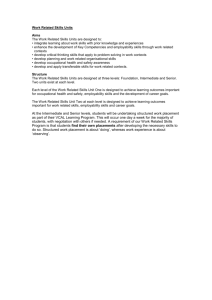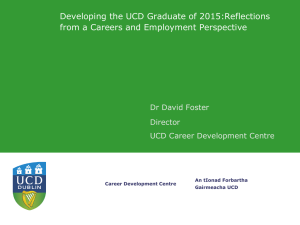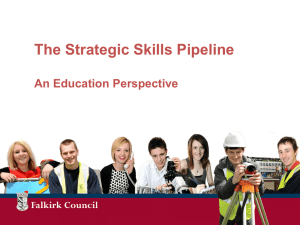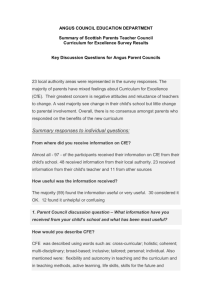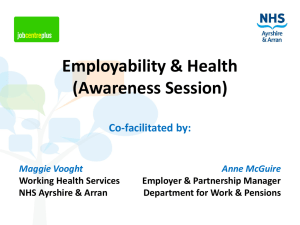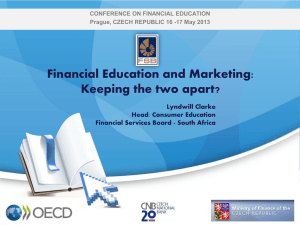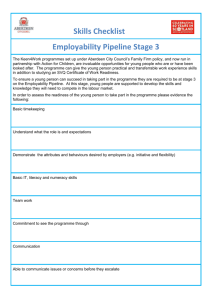SCEEN Statement on Work Experience
advertisement
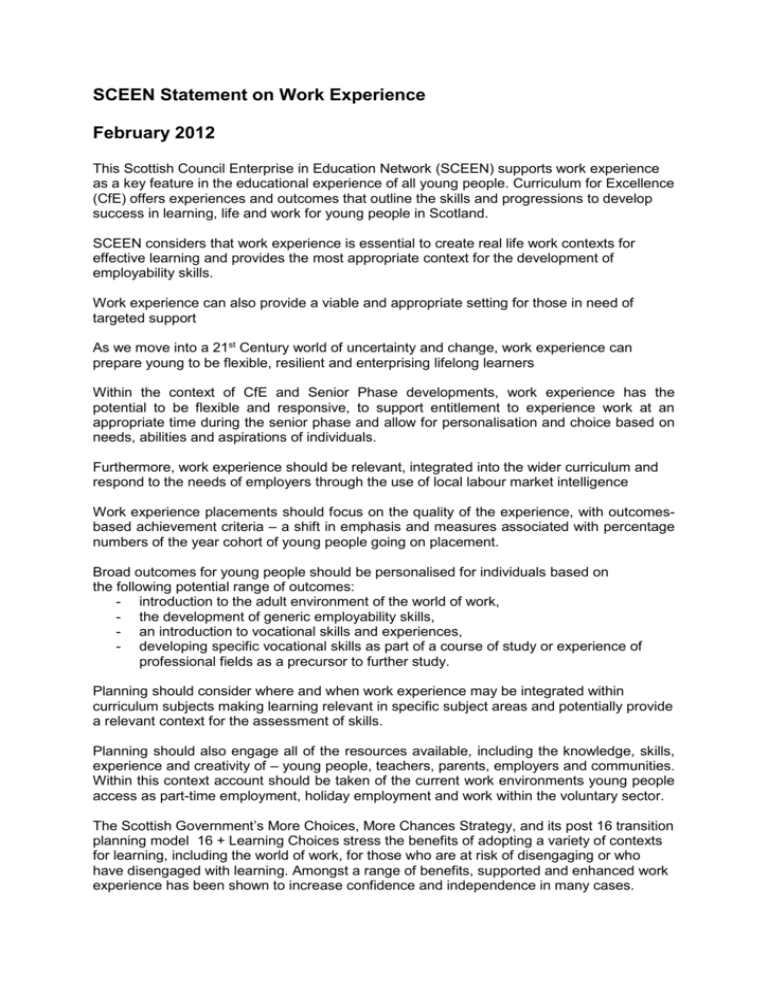
SCEEN Statement on Work Experience February 2012 This Scottish Council Enterprise in Education Network (SCEEN) supports work experience as a key feature in the educational experience of all young people. Curriculum for Excellence (CfE) offers experiences and outcomes that outline the skills and progressions to develop success in learning, life and work for young people in Scotland. SCEEN considers that work experience is essential to create real life work contexts for effective learning and provides the most appropriate context for the development of employability skills. Work experience can also provide a viable and appropriate setting for those in need of targeted support As we move into a 21st Century world of uncertainty and change, work experience can prepare young to be flexible, resilient and enterprising lifelong learners Within the context of CfE and Senior Phase developments, work experience has the potential to be flexible and responsive, to support entitlement to experience work at an appropriate time during the senior phase and allow for personalisation and choice based on needs, abilities and aspirations of individuals. Furthermore, work experience should be relevant, integrated into the wider curriculum and respond to the needs of employers through the use of local labour market intelligence Work experience placements should focus on the quality of the experience, with outcomesbased achievement criteria – a shift in emphasis and measures associated with percentage numbers of the year cohort of young people going on placement. Broad outcomes for young people should be personalised for individuals based on the following potential range of outcomes: - introduction to the adult environment of the world of work, - the development of generic employability skills, - an introduction to vocational skills and experiences, - developing specific vocational skills as part of a course of study or experience of professional fields as a precursor to further study. Planning should consider where and when work experience may be integrated within curriculum subjects making learning relevant in specific subject areas and potentially provide a relevant context for the assessment of skills. Planning should also engage all of the resources available, including the knowledge, skills, experience and creativity of – young people, teachers, parents, employers and communities. Within this context account should be taken of the current work environments young people access as part-time employment, holiday employment and work within the voluntary sector. The Scottish Government’s More Choices, More Chances Strategy, and its post 16 transition planning model 16 + Learning Choices stress the benefits of adopting a variety of contexts for learning, including the world of work, for those who are at risk of disengaging or who have disengaged with learning. Amongst a range of benefits, supported and enhanced work experience has been shown to increase confidence and independence in many cases.
